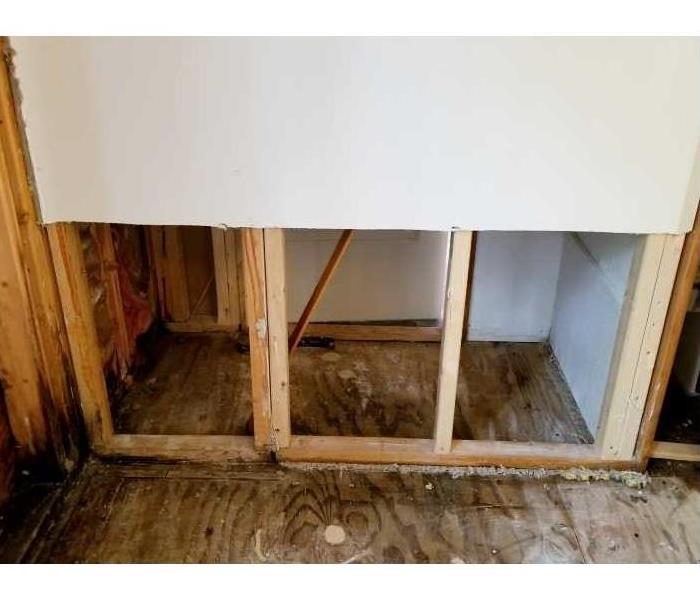Purpose of Flood Cuts
7/12/2021 (Permalink)
A heavy storm can cause a significant amount of damage to your home. Lightning can strike trees, causing them to fall on the house and tear up the roof. High winds that pick up debris can lead to broken windows. The main concern during a storm, however, is likely flooding. If a weather event in the Chicagoland area leaves behind a lot of standing water in your home, flood restoration specialists may have to make a flood cut to remove all the damage.
When Is a Flood Cut Necessary?
A flood cut is the method the cleanup team uses to tear out materials that can't be salvaged. Technicians will probably need to use a flood cut if the water damage meets certain criteria:
- High levels of contamination
- Suspected damage in hard-to-reach areas
- Compromised structural integrity of the wall
Flooding from a storm almost always leads to a flood cut because the water is contaminated. If the standing water in your home comes from a clean sources, however, technicians may try to save the wall, even if there is a lot of water.
How Is a Flood Cut Measured?
When removing drywall, the mitigation team wants to make sure that it tears out all the damage. Specialists typically make a flood cut at least 12 inches above the spot where the water damage ends. This ensures that any unseen damage is also removed.
What Happens After the Flood Cut Is Made?
Once the cut is made, the technicians remove the drywall. They take out all the damaged material, including any damp insulation behind the wall. Before they rebuild, they have to make sure the area is clean and dry so that no secondary damage occurs.
If a storm causes flooding in your home, it may take more than simply removing the water and wiping down surfaces to complete the repairs. Technicians may have to make flood cuts on your walls to remove all the damage.





 24/7 Emergency Service
24/7 Emergency Service
